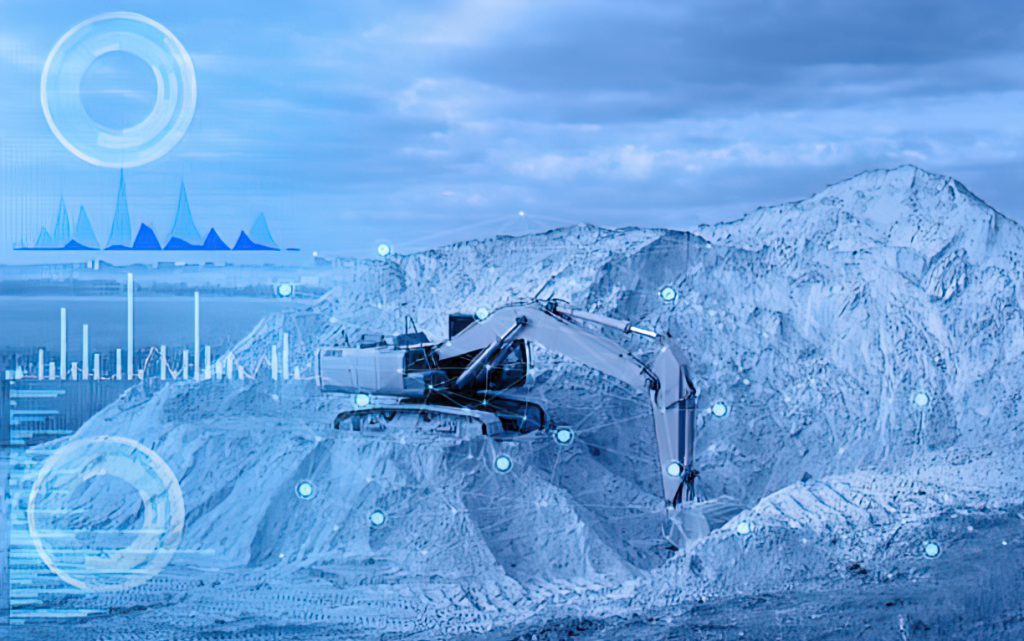Artificial intelligence to benefit the mining industry

BEAP, a clean technology startup, and Norda Stelo, an established engineering firm, are joining forces to introduce artificial intelligence into the mining industry. The $1.2 million project, supported by Investissement Québec as mandatary of the Government of Québec, seeks to solve a major issue for this industry; how to use artificial intelligence to predict failures and the lifecycle of a series of static assets, such as pipeline networks, conveyor lines and buildings.
BEAP and Norda Stelo thus propose to develop a platform allowing them to perform predictive maintenance of static assets in the mining sector, which have very little, or no data captured in real time.
This platform merges the data gathered during asset inspections and maintenance with human engineering knowledge, which will lead to machine learning models to improve the precision of predictions.
For the mining sector, predictive and even prescriptive maintenance of strategic assets may allow a considerable reduction of maintenance costs and favour 20% to 25% production growth, permitting a better return on investment.
This digital innovation could find application potential in 22 mines, 14 smelters and refineries and 16 plants currently in operation in Québec. In the medium term, this solution would be deployed in the energy sector, which already faces the same asset management issues, not to mention the foreign export potential.
“This project is especially dear to us. Our team concentrates on preventing the negative economic, environmental, and human consequences of unexpected failures. We have developed a method for collecting and processing information that provides structured data for artificial intelligence analysis. We can thus improve our understanding of asset health by helping tools already in place. That knowledge enables mining companies to improve asset monitoring and simplify the operational process,” explains Benoit Moffet Bédard, President and Co-founder of BEAP.
The mining industry has embarked on an ambitious and strategic path by adopting technology that favours a high level of autonomy. Optimal analysis of equipment data by artificial intelligence allows generation of a large volume of relevant information for sustainable asset management.
Currently, most maintenance operations are based on the knowledge of experienced personnel without being scanned or secure. By using analytical techniques to increase comprehension and scanning of asset data, the mine raises the level of monitoring and comprehension of its operational process.
“With several clients, we find that most of the inspection reports are derived from handwritten forms containing unstructured qualitative data. This data, essential for tracking the health of equipment, is generally decentralized and in different formats that are difficult to consult. This documentary disorganization has an impact on the response time and the quality of the decisions concerning equipment maintenance.
The project, which includes inputting inspection data with a tablet or smartphone, will generate interactive reports that add real value to the data for the client, facilitating decision-making and risk management in servicing and maintenance of its assets.” Â – Sophie Boisvert, Vice-President, Resources and Industry at Norda Stelo.
Failure reduction has economic impacts on a mine’s production, and it certainly has significant environmental consequences. Due to failure prediction, maintenance interventions are much more targeted. The teams can repair or change certain parts instead of changing an asset completely. This can extend the life of assets and optimize their use. Not only can these industries expect superior performance, but also sustainable development by minimizing spills, incidents and unscheduled shutdowns.
Minerai de fer Québec, as stakeholder in the project, was attracted by the proponents’ environmental approach. As the Chief Operating Officer, Alexandre Belleau of Champion Iron Limited, involved in the project through its Minerai de fer Québec subsidiary, declared, “for our fast-growing company, participation in this project allows us to contribute to the development of digital technology and artificial intelligence in our industry. Although we already contribute to the reduction of global GHG emissions, particularly thanks to our high-quality iron ore products, we are constantly looking for projects to improve our sustainable practices during our operations. Since ingenuity is one of our core values, it was natural for us to contribute to the BEAP project.”
The BEAP and Norda Stelo project is consistent with the Québec government vision for an innovative, prosperous economy, focused on new technology. “Innovation is the key to competitiveness for all Québec companies, including those in the mining industry. The intelligent platform perfected by BEAP and Norda Stelo will allow them to improve their procedures so that they upgrade their performance. Thanks to this digital innovation, all of Québec will benefit from the inventiveness, creativity and knowhow of these two companies,” points out Lucie Lecours, Minister for the Economy.
